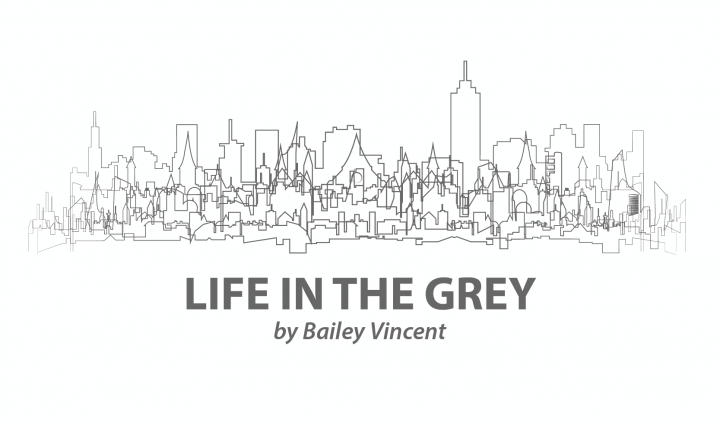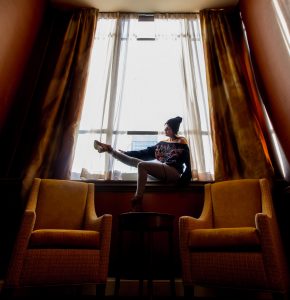When Comparing Yourself to Others Makes You the Worst

I compare myself to other people.
I shouldn’t, but I do.
Sometimes, other people seem nervous to compare themselves to me. “I don’t want to sound like I’m complaining about my health to you” is a regularity, and I never stop appreciating that sensitivity.
We have all known that person who kvetches and rants about a cold or a run-of-the-mill toothache with zero perception of how impervious they can be to another. I’m ashamed to admit this drives me nuts. Even with a needle in my chest or notable ailment, there is always someone who will look at you and say, “Oh, you have allergies, too?”
Here’s the problem though: We all have the right to our feelings. If someone feels like their discomfort is the greatest discomfort there is, then it is. They are not wrong in feeling their worst is the worst, because it is their worst, and it’s not their fault per se that they don’t understand my worse worst, either.
See what I did there? I just passive-aggressively compared again. To be honest, I only do that about 5 percent of the time. Maybe 10 percent. The other 95 percent of the time I’m saying: “It’s OK if they don’t understand. I want them to be able to complain to me. I don’t want someone else to have to deal with this.” And I mean it.
Even so, one of the worst side effects of sometimes feeling the worst is that I am left out of helping. Some of my dearest friends are those who let me in when it came to their own personal worsts. I’ve been honored to hold a hand during a rough medical procedure. Or drive another to a doctor’s appointment. Or get the “How much humidifier is too much humidifier?” text from a best friend from afar. Being able to lend advice (or just shut up and listen) feels like the ultimate privilege, and one I will never take for granted.
Weirdly, being able to share “medical advice” or go bossy-pseudo-PhD makes the pains and problems feel slightly more worth it, too. As if I’ve gone through all of this for “a reason.” Yet, weirder still are those who simply have no perspective at all — and trust me, there is one in every room.
In the past, I’ve had dancers that were always injured. Not a single week went by that they didn’t have a new ache or pain to report at the beginning of class, or a request for Motrin, or a desire to sit it out.
The thing is, those aches and pains were valid to them. No one should dispute someone else’s right to feeling wrong at any given second. But there also comes a time when someone must ask: Is this worth it?
If we cannot survive even one week without a complaint, perhaps the activity is not incentivizing enough. And that’s OK. Dance (in this case) is not for everybody, and it’s certainly not for every body.
Dance is not for my body, for example. Dance, no matter how I cut it, hurts. It causes me pain. It makes my discomfort increase and my nighttime feel worse than if I hadn’t danced at all. But it also gives psychological autonomy. It makes me want to push through something because the reward of feeling free — even for a brief moment — is greater. It makes the aches and pains that inevitably follow feel earned, instead of put upon my body against my will. It is, without a doubt, worth it.
It’s weird to think that accruing more pain can cause less in the long run, but it’s extremely true. Staying active or pushing for something you want can decrease symptoms in the long run, or even just help mental health enough to be necessitous. Still, any time a human cannot endure an activity without grievance or hope to opt out, it begs the question: Why are you doing it?
If we want it, we find a way. We adapt. We lower our leg but elevate our arms. We do less rotations but lose ourselves in the joy of simply moving. Whatever the modification, when it’s worth it, you’ll know it. And when it’s not, we should listen.
I love when dancers share a physical hurdle they’re facing so that we can find a way to help them through. But I do hate myself a little when I accidentally compare myself to someone else, because I should be better than that.
The longer I exist in a body that isn’t going to become permanently “better,” the more sensitive I am to others’ betters and worsts. And that’s unfortunate. Because in the end, I’m fortunate to have this perspective. And this body. And this experience on earth.
Because I’m still alive enough to write it. And think it. And feel it.
And, for better and worse, that’s a gift with simply no comparison.
***
Note: Cystic Fibrosis News Today is strictly a news and information website about the disease. It does not provide medical advice, diagnosis, or treatment. This content is not intended to be a substitute for professional medical advice, diagnosis, or treatment. Always seek the advice of your physician or other qualified health provider with any questions you may have regarding a medical condition. Never disregard professional medical advice or delay in seeking it because of something you have read on this website. The opinions expressed in this column are not those of Cystic Fibrosis News Today, or its parent company, Bionews Services, and are intended to spark discussion about issues pertaining to cystic fibrosis.










Leave a comment
Fill in the required fields to post. Your email address will not be published.